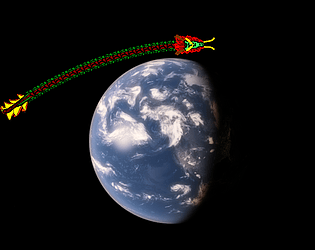Sooooo. This year I decided to ask my friend, Ant, to join me in this game jam! I've been super busy and haven't had time to write up our devblog, and Ant is too shy to start the first post. Which is why we're only writing this now 😅
We started off reading all the verses and their chapters to get some context, and ended up choosing Ephesians 4:32
Be kind and compassionate to one another, forgiving each other, just as in Christ God forgave you.
I wanted to do something more meta and not overtly Christian this year, after last year's entry. Ant wanted to do a multiplayer game. Ephesians 4:32 was particularly nice as it fit both our needs -- a local multiplayer game with manufactured conflicts between the players, where communication and patience with one another is key. Your teammates will make mistakes, but how you react determines how the game goes.
It was really fun brainstorming this game with Ant, and we even have a design doc (albeit a really messy one) to show for it. Maybe we'll clean it up and show some snippets of it in a later post! That's it for now, it's late and I've spent way too much time coding today 😴
P.S. Ant isn't a Christian, so be nice to him!



